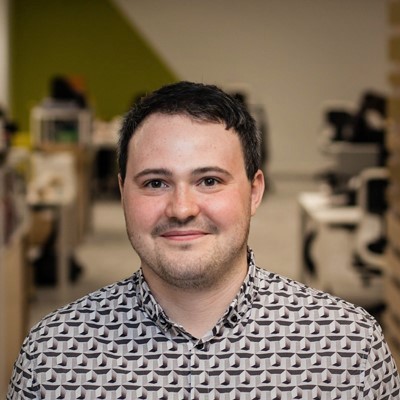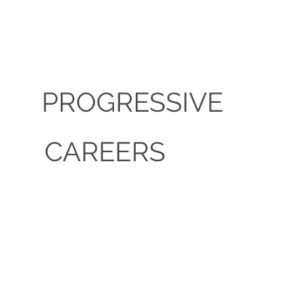Unemployment is a social and economic issue that has several effects on individuals and their societies. The negative effects of unemployment outweigh by far the positive effects because being unemployed can lead to depression, low self-esteem, mental health issues and goes on. Progressive Careers has set as a mission to address the humanitarian crisis created by unemployment. ‘Progressive Careers is a support network aiming to help people transition into the social impact sector and make more than money.’ The Social Innovation Academy engaged into an insightful discussion about the creation of social impact in unemployment with the initiative’s creator, Mr Gary Fawdrey.
What is the social innovation about?
Progressive Careers is about making it easier for people to find work that has a positive social impact. The social impact sector includes all jobs in which having a positive effect on the world is the number one priority. This includes public sector jobs such as Teachers and Doctors, paid roles with charities and positions within social enterprises. I created an online directory, bringing together the various courses, graduate schemes, job boards and funders within the social impact space as well as a mentoring scheme to provide interested people with 1-to-1 career coaching from those already working in social impact.
Why did you start this social innovation?
I started Progressive Careers directly as a result of my own experience of trying to break into the social impact sector. Despite having a longstanding interest in the field, whilst at university my own awareness of the career options was very limited. Charities and social enterprises tend to not have the budget available to advertise themselves directly to graduates, like the major corporate employers do, it is therefore much more difficult to learn about the employment options in the social impact sector compared to others.
How did you come up with the idea?
I was lucky enough to secure a place on a social impact graduate scheme, and was placed in a social impact start-up organisation that facilitated collaboration between multiple charities. Through this experience I learnt about many different opportunities in the sector, and realised that there are lots of potential social impact careers. I decided to create what I wished I had had access to myself, a one-stop shop for all the information I needed. I am also passionate about the importance and power of mentoring, and thus decided 1-to-1 advice from people who had already broken into the sector would be highly valuable to those just starting out.
What were you afraid of at the beginning and how did you overcome the fear?
My biggest fear was managing my time, as I launched this initiative alongside a full-time job. I went through various attempts of finding the best time of the week to set aside to work on the project and eventually settled on something that worked for me. Through creating clear rules for myself I removed the fear, as I was reassured that I could only do a certain amount each week and that was not flexible.
What were the beginnings of the social innovation?
I initially did research to identify the content for the directory, before creating the resource as a website. I decided to start with this aspect as it was not time dependant and would allow me to test the concept through seeing if there was interest in it. Once the site was regularly getting visitors, I introduced the option to sign up for a mentor.
How did you attract public attention to the issue you wanted to tackle and make others believe in your purpose and potential?
I promoted the initiative through focussing on organisations and people that had similar interests, including those that operate in the social impact sector and need staff, those that offer career entry points such as courses and funding, and those that work in supporting people into employment more generally. As university students were a key target for me, I approached a number of university careers services; I knew they would be interested as our objectives aligned.
How did you make sure that your idea actually fits the needs of the users?
I started simple and made sure I listened to feedback before iterating. A key part of this was ensuring both mentees and mentors completed feedback surveys on their experience. I also regularly asked interested parties if there was anything the directory was missing, which led to me adding an internships section.
How did you raise the money for your idea and what is your advice for others considering DYI fundraising?
I haven’t raised any money for this initiative. I decided early I wanted this to exist because I thought that it should, it didn’t need money to run and I didn’t need money in order to work on it. This is of course though not always the case with social innovation projects.
How did you scale your social innovation and what tips for scaling could you share?
I started initially with a focus on London (where I live), and through pairing mentees and mentors up one at a time. This ensured the workload was manageable, and I could iterate based on feedback. I then scaled through outreach to universities, which drove traffic to the site and increased the number of applications. In terms of tips for scaling I would say focus on ‘low hanging fruit’ first, the easy wins that will help you get established. As well as planning out a process that includes multiple points of reflection and iteration, rather than going for a big scale-up in one go.
How do you change the whole system?
I think this depends on what area you are working in, and what system you are talking about. Generally I would say start small, seek converts, identify where power lies and create clear incentives for the system to change in your desired way.
What is the one advice you can give to an aspiring social innovator, a member of the Social Innovation Academy, with only two things at the moment: a big heart and a willingness to do something?
Start small and test your idea as much as possible, including prioritising the views of the beneficiaries.

I am a social innovation practitioner and coach, passionate about empowering those with lived experience of social problems to take the lead in developing and implementing solutions. I am currently based at Nesta where I co-ordinate the delivery of the European Social Innovation Competition on behalf of the European Commission. I am also a Contributing Editor at Impact Boom, an Advisor to Social Innovation Academy and part of Serious Impact’s Expert Faculty.
Social Networks: LinkedIn | Twitter | Progressive Careers
Would you like to learn more from other inspiring social innovators?
Check out the Social Innovation Academy – the first fully online management training programme focusing exclusively on social innovation.
If you are interested in keeping up with the project, you can subscribe to our newsletter, become one of our friends or follow us on social media (LinkedIn, Twitter and Facebook). We welcome all requests for collaboration here.

